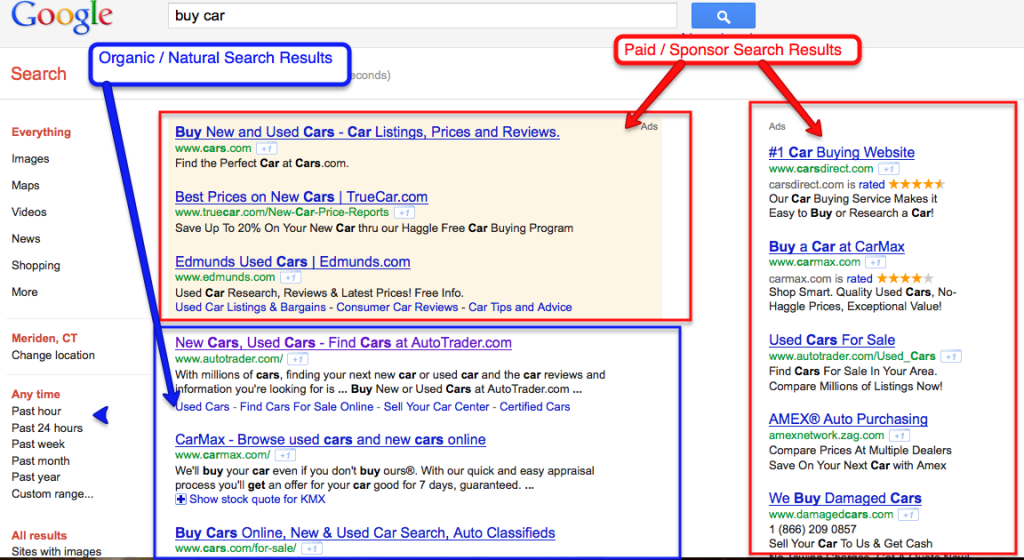In our first lesson, we’re going to explain what SEO is and why it is important for businesses.
What is SEO? (Search Engine Optimisation)
Search engine optimization is the process of improving and promoting a website in order to increase the number of visitors to it from search engines (organic search).
The main goal of search engines such as Google and Bing is to return the most relevant, high quality results for search queries.
For example, if someone searches “buy shoes” then a search engine’s job is to provide the best results for that particular search.

SEO is about making changes and improvements to your site in order to encourage search engines to rank your website highly for your targeted keywords. This in turn generates more targeted traffic, sales and revenues for your business.
So, if you were a shoe wholesaler with the website MikesShoes.com, you’d want to SEO your site to rank for search terms such as “buy shoes”, “buy shoes online”, “cheap shoes” and hundreds of other terms.
How Important is SEO Traffic?
Although other traffic sources such as paid media and social can be beneficial to a business, more than half of Internet traffic (around 60%) comes through search engines such as Google, Yahoo and Bing.
In the UK alone, Google has 92% market share of the search market. This means the typical UK website not only receives 60% of its traffic from search engines but also around 55% from Google alone.
In fact, a typical website’s traffic sources can be broken down into the following:
- 40-50% from SEO
- 25% Direct Visitors
- 10% Referral Links
- 10% PPC
- 5% Social
Why Do I need to do SEO?
Although search engines are intelligent in crawling the web and delivering the most relevant results for users, there are a number of ways that a Webmaster improve his/her website’s SEO in order to ensure that it ranks better in the search engine results.
Google uses 100’s of ranking signals for their website search results, which includes important ranking factors such as backlinks, title tags, website page length, keywords, website age, user experience, technical architecture and more.
Almost every one of these signals is malleable and can be improved or optimized for your website, which is where SEO comes into it. The great thing about SEO is that the smallest changes, such as improving your page speed or changing your page titles, can generate the biggest impact on your site.
Why do you Need to Rank on the First Page of Google?
When launching an SEO campaign, the primary goal is always to get your site ranking on the first page of Google. Why? Because according to the latest research, Page 1 of Google receives 92% of all search engine traffic. This means that only 8% of searchers click past the 1st page of Google’s search results when looking for information or shopping online.
Furthermore, separate studies have shown around 30-50% of users click on the first result in Google’s organic listings compared to 4-6% that click on the 5th result. This shows the huge importance in ranking for the no.1 position for your keywords, even if just for the short-term.
About Our SEO Training Course:
Our SEO module is designed to take you through all of the different ranking factors that search engines such as Google use and how to optimize your site for these different factors.
- Title Tags and Keywords
- External Backlinks
- Content Quality and Length
- Domain Age and Authority
- Internal Backlinks
- Page Speed
- User Experience
- Click Through Rate (CTR%)
- Brand and Social Signals
- HTML Markup

